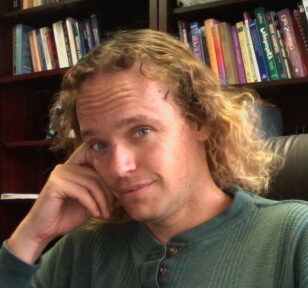
- This event has passed.
Dr. Chris Eliasmith: Exploring a simulated brain: from human behaviour to drug effects | Étudier le cerveau virtuel : du comportement humain aux effets des médicaments
April 14, 2016 @ 7:15 am - 8:15 am

Chris Eliasmith, University of Waterloo
Jeudi, le 14 avril 2016
Large-scale brain models have become the centerpiece of many international “big science” projects. At the University of Waterloo, Chris Eliasmith and his team have created ‘Spaun’, the world’s most comprehensive, functional brain model. The first to demonstrate realistic
behaviours under biological constraints, Spaun can reproduce animal and even human behaviours. The team uses the model to understand normal brain function, neural disorders, the effects of drugs on behaviour, and to build smarter artificial agents.
Chris Eliasmith is Director of the Centre for Theoretical Neuroscience at the University of Waterloo and holds a Canada Research Chair in Theoretical Neuroscience. He is a member of the inaugural cohort of the College of New Scholars, Artists and Scientists. He has authored or coauthored two books, including ‘How to build a brain’ (Oxford, 2013), and more than 90 publications in philosophy, psychology, neuroscience, computer science, and engineering. His ground-breaking work was published in Science and has been featured by CNN, BBC, Der Spiegel, Popular Science, National Geographic and CBC among many other media outlets, and was awarded the NSERC Polanyi Prize for 2015.
Chris Eliasmith, University of Waterloo
Thursday April 14, 2016
Les modèles à grande échelle du cerveau sont maintenant au cœur de nombreux projets internationaux de mégascience. À la University of Waterloo, Chris Eliasmith et son équipe ont créé Spaun (Semantic Pointer Architecture Unified Network), le modèle fonctionnel du cerveau le plus complet au monde. Spaun est le premier modèle qui peut démontrer des comportements réalistes sous des contraintes biologiques : il peut reproduire non seulement des comportements animaux, mais également des comportements humains. L’équipe de recherche utilise Spaun pour comprendre les fonctions cérébrales normales, les troubles neurologiques et les effets des médicaments sur le comportement et mettre au point des agents artificiels plus intelligents. Chris Eliasmith est directeur du Centre for Theoretical Neuroscience à la University of Waterloo et titulaire de la Chaire de recherche du Canada en neuroscience théorique. Il est membre de la première cohorte du Collège de nouveaux chercheurs et créateurs en art et en science de la Société royale du Canada. Il est auteur ou coauteur de deux livres, notamment How to build a brain (Oxford, 2013), et de plus de 90 publications en philosophie, en psychologie, en neuroscience, en informatique et en génie. Les travaux d’avant-garde de M. Eliasmith ont été présentés dans de nombreux médias, notamment sur plusieurs chaînes, dont CNN, la BBC et la CBC, de même que dans certaines publications, entre autres Science, Der Spiegel, Popular Science et National Geographic. De plus, en 2015, M. Eliasmith a reçu le Prix John-C.-Polanyi du CRSNG.
